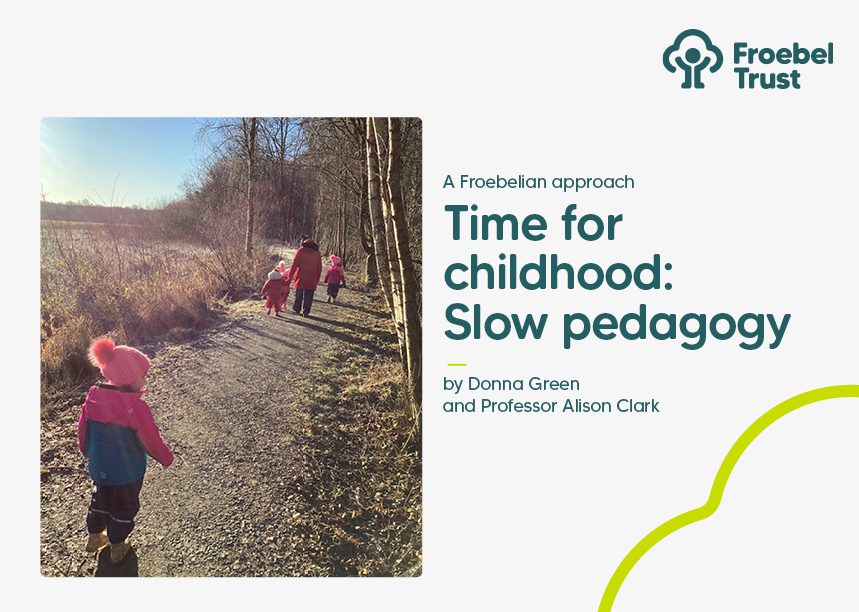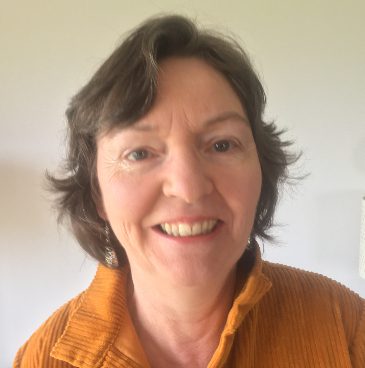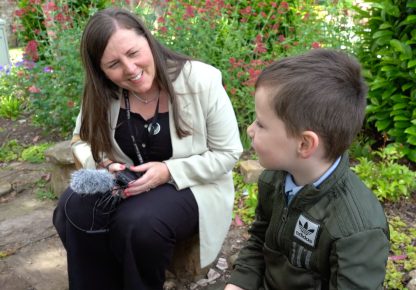A short film all about slowing down our approach to early childhood education today. Produced in July 2022.
Professor Alison Clark's Froebel Trust funded research explores how slowing down our approach to early childhood education can make a huge difference to the everyday lives of young children.
What is slow pedagogy?
Slow pedagogy is all about:
- valuing the present moment
- being attentive to children’s pace, rhythm and interests
- enabling children to revisit their ideas and creations, places and stories
- creating opportunities for children to go deeper in their learning
- supporting time for observation, listening, reflection and documentation
- encouraging unhurried everyday routines with time for wonder and care.
Download a free Froebel Trust pamphlet by Professor Alison Clark and Donna Green
This Froebel Trust title has been created for everyone who works with and cares for children and is packed with practical advice.

The research
Find out more about Alison Clark's research 'Slow knowledge and the unhurried child' in our Froebel Trust online research library. You can also find out more about the Froebel Trust funded Falkirk project, led by Donna Green - supporting practitioners implementing slow pedagogy in their settings.
Alison's research links to a Froebelian approach to early education - the value of childhood in its own right and the importance of childhood experiences.
"Each individual is unique, [and] has the power to express himself in his distinctive way… Each person, each child has a particular gift which will become visible if circumstances are right and freedom for expression is given."
Froebel
Alison's research looks at a range of slow practices where there is time for both children and adults to be less hurried.
This has included the following examples where there has been time for:
- mealtimes to be important features of the day where there is time for young children to participate fully and be involved in the preparation, sharing food together and tidying up
- outdoor exploring with time to tune into the pace and rhythm of children
- opportunities for children to revisit the same environment and to develop a connection and sense of belonging
- stories to be invented, extended and reimagined many times
- unhurried personal everyday routines such as nappy changing
- exploring materials such as clay and wood that ‘hold time’ in a particular way and open up many possibilities for play and creativity
- projects to be developed to respond to children’s interests and concern and developed over time.
About Alison Clark

Alison Clark is Professor of Early Childhood Education at University of South-Eastern Norway and Honorary Senior Research Fellow at Thomas Coram Research Unit, UCL Institute of Education, London.
Alison Clark's book 'Slow Knowledge and the Unhurried child: time for slow pedagogies in early childhood education' will be published by Routledge (https://www.routledge.com/) in December 2022. A 20% discount is available with the code FLA22.


